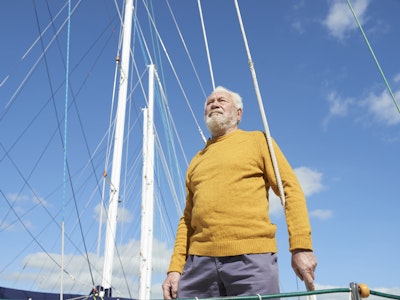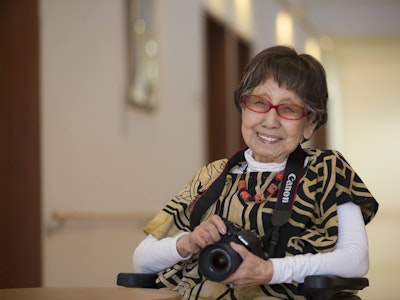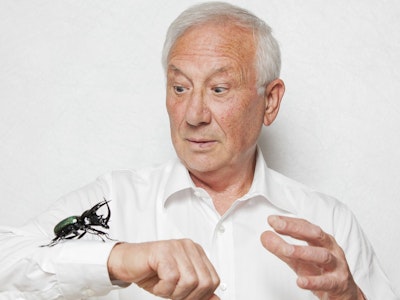Later Life Stories – Artisan On Song
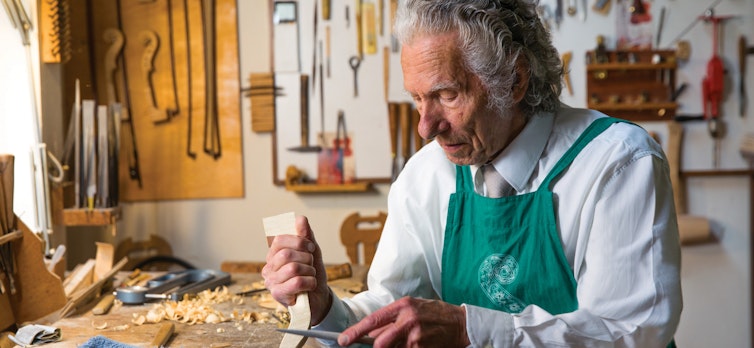
The man credited with reviving the violin-making traditions of Antonio Stradivari says understanding nature is the key to a healthy life.
Nature has taught me everything – how to be a good violin-maker, how to live a good life and the importance of experimentation.
I travel the world from Beijing to Moscow, London to New York. People invite me to explain how I revived the violin-making traditions of Antonio Stradivari in Cremona, where I have been a luthier since the 1950s. When I arrived, they only made little souvenir violins for tourists. I had to start from scratch, unlocking the art of great violin making through years of patient study and toil.
The secret? Nothing to do with glamorous concert-halls or black-tie galas. The story begins in a lonely spruce forest in the mountains of northern Italy. It was there, walking as a young man, that I came across a spruce tree that produces perfect wood for crafting violins.
This spirit of experimentation keeps you young
People call it l’abete di risonanza – the resonant spruce – but for me, it’s simply nature yielding its secrets. Nature has also taught me lessons on living a healthy and passionate life.
First, a natural diet is important. I abhor anything artificial or mass-produced. The tomatoes you see in the supermarket that all look identical, or meat from animals that have been raised in cages and end up tasting of nothing.
Second, nature is the source of everything that matters in my work. In my early days as a luthier, I wanted to discover the secret of the beautiful red varnish of the Stradivarius violin. After 300 years, it’s still the same red. Through experimentation, I discovered that aluminium sulfate was the key to maintaining this colour. So, I ordered some from Milan. It came in a packet and it was chemically produced. It had no effect.
One day I went into my garden to walk among the vines. I had this idea to cut some and burn them. I took some of the ashes inside and used them in the varnish. It worked. This was the natural aluminium sulfate I was looking for!
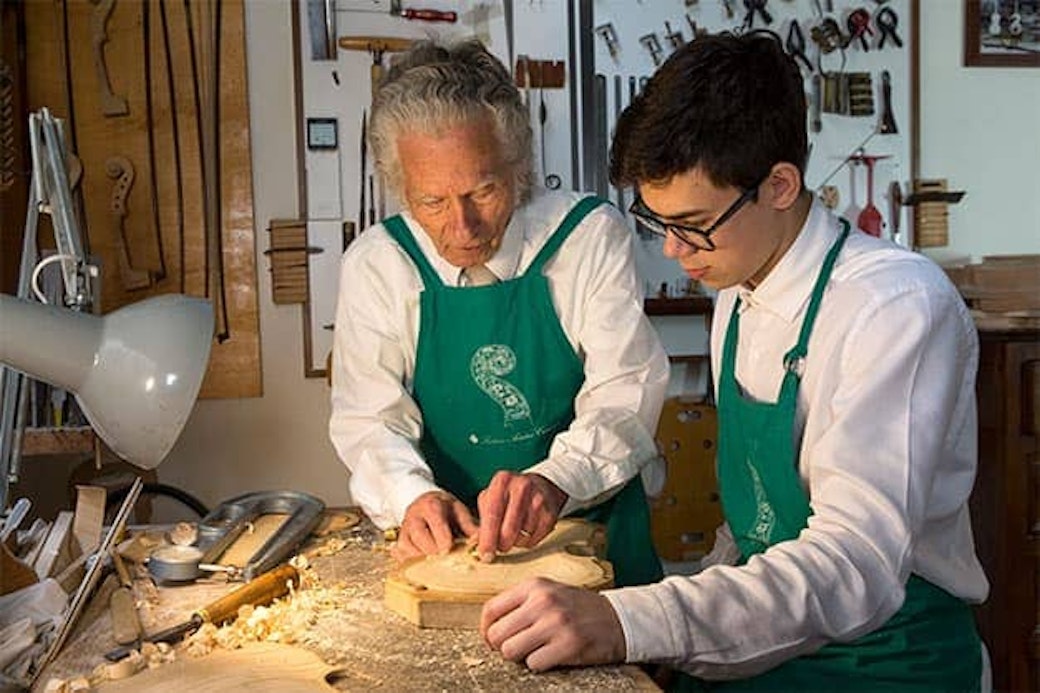
Experimentation, trial and error, the spirit of trying different things is necessary for long living. This spirit of experimentation keeps you young.
So does work. I can’t be without work. But it must be a divertimento, a kind of play. It must be something you enjoy, that doesn’t weigh on you. That doesn’t mean my work isn’t hard. It’s particularly tough on my hands. There are no shortcuts in this trade, only painstaking toil and loving care – and that takes its toll.
I source the spruce from the forests around my hometown of Tarvisio. For decades, I cut the trees myself. The wood then needs to be aged, matured for years, until it becomes hard as bone to cut into thin strips for crafting violins.
All my life I have been working this hard wood, using only my hands and traditional carving tools. To craft a great violin, you need to understand the material and treat it well. You must cut it properly, at the right time, in the right season – even under the right moon. The art of making violins requires cutting the tree during a waning moon to ensure that it won’t be worm-spoiled and stays light.
You might say I myself am under a waning moon. Yet I am still maturing, staying healthy and growing lighter. And I am still maturing the spruce from the mountains where I was born – this hard wood that makes my joints ache – to craft violins that possess grace and lightness.
Find Us
2 Dovehouse Street
London, SW3 6BF
020 4549 8000
Auriens is a member of ARCO, which represents Integrated Retirement Communities in Great Britain. As an ‘Approved Operator’, Auriens aims to comply at all times with the requirements of the ARCO Consumer Code.
